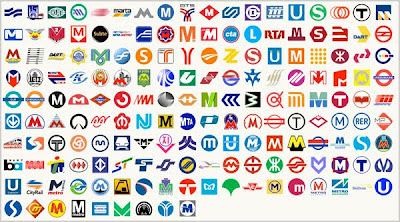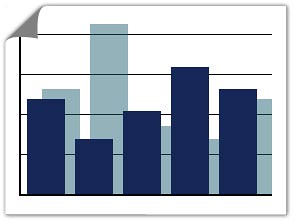
The Examiner is reporting that riders who bothered to answer Metro's budget survey overwhelmingly prefer fare hikes--substantial ones--to service cuts--substantial ones.
We suppose given the current budget picture and that the union agreement appears untouchable, it's the only way, but how absurd and surreal it is that so many of us are practically begging for fare hikes of up to 28 percent when the overall service has been deteriorating.
We've badmouthed WMATA PR, but you have to hand it to them for presenting such limited options and getting us to swallow a whole pile o' suck with a smile on our faces.
We also wonder how support for fare increases would have been had they been truthfully represented as regressive tax increases on the people least able to afford it.
WMATA, the union, the Board and the jurisdictions should be ashamed-again.
Next week, the cycling experiment begins.
Other takes:
Local paper
Fox









 Oct. 11, 2012
Oct. 11, 2012 February 21, 2012
February 21, 2012 March 4, 2010
March 4, 2010





19 comments:
Well said. And what amazes me is how easily some of the local media seems to fall for WMATA's spin tactics and bogus statistics too.
Could anyone who has ever ridden Metro agree that the results of this survey REALLY represents their views?
Not to be off topic, but what ever happened to the customer who was hit by the metro a few days back? I've seen nothing since then about what actually happened.
We're used to being on the pointed end of the WMATA spin machine every few years - this time has been no different.
It doesn't help that the Post's WMATA-beat reporter falls for the hype from WMATA hook, line, sinker, rod, reel, and copy of the Angling Times.
As long as WMATA presses their preferred mythology that the riders (and I mean both the disabled and the able-bodied ridership) have to be the ones who make all the sacrifices and WMATA makes none itself, we're all going to get screwed with this one way or another.
Makes you almost pine for the days of Richard White, doesn't it?
Th post fails to cover the real problem
at wmata, the people.
Notice that the survey's respondents are in favor of hiking up fares on buses and on commuters during the 90 minute "peak of the peak" of rush hour.
I think it can be safely assumed that they did not ask anyone if they personally ride the buses or ride the trains during that time period.
I think it can also be safely assumed that they did not ask anyone if they PAY for their own fare or the fare that would be affected with such a proposal.
A very large percentage of Metro riders are Federal employees. The Federal government pays a large portion of their employees' Metro commuting costs. If the vast majority of the riding - and paying - public voted in favor of rate increases, even faced with two lousy choices, that would have much greater legitimacy than what appears to be the case.
Some questions that I would like answered are:
1. Who answered the survey (demographic groups, not specific people, obviously)?
2. Do these people ride the Metro at the times they are proposing raising the fares?
3. Do these people ride the buses (on which they propose to raise fares)?
4. Do they PAY their own fares?
I know a lot of metro riders. I asked every single one. NONE of us got to participate in any survey. So, who, exactly, did they ask?
I find myself seriously disappointed in The Wash Post, too. Always thought they were reality-minded reporters who delved seriously for the actual facts of life. Apparently not.
The survey was done online, but you had to dig to find it. Anything else was from the paltry 6 public discussions.
Lena Sun always managed to ferret out around the spin WMATA was throwing out 4 years ago, she was balanced.
This new one, Ann Scott Tyson, seems to just parrot WMATA's position on everything, and if she mentions anything that runs counter, it's usually buried and *just* a mention.
Seth, you raise a point that has been raising my hackles for a long time now. Who cares what Federally-funded ridership says when it comes to fare hikes? They don't pay. I do. Twice. You're welcome.
How about option 'C'? Improve services, cut budget, conduct business efficiently, get rid of dead weight, and suspend fare hikes. Anyone who says this is not possible is not American (and may very well be a terrorist... so... you know... watch yourself).
On the regressive tax note...has anyone done an analysis on the "real" cost of a bus and rail trip, adjusted for inflation from a base year, perhaps 10 or 15 years ago? The bus and rail hikes should really be compared on that scale, and also equated on a national level to comparable transit costs of bus and rail respectively, don't you agree? If Metro didn't increase bus fairs for 10 years, but did recently on rail, and then disproportionately increased bus more than rail, I don't see that as being unfair or biased towards lower income people. The fare hikes on each are really not correlated on an annual basis, but more so on an inflation adjusted cost.
Not trying to speak for or against the hikes, just providing another perspective on the increases. One should analyze the % of income(average wage of bus rider) a commuter spends in DC for transportation, and then compare that to the other major metropolitan areas around the country. I think that would offer a better comparison in this case, and provide a much stronger case for or against the fare hikes depending on what that analysis shows. The post only reports in % terms of this current increase, which is pretty misleading without taking the entire history of fares into consideration.
I participated in the survey and I opted for fee hikes, mainly because the ONLY other option offered (and it was in a multiple-choice- select A, B, or C,- type of format) was service cut-backs.
Money will not solve the problems wmata has and I completely understand that fact. But when given a choice between paying more or not being able to get to/from work in a timely manner (let's pretend that it happens now), I'll pay more.
In sum, the survey was very one-sided and engineered to not ask for a rider's opinion of what the PROBLEM is, but to ask the rider to choose between fare hikes OR service cuts.
To answer the off topic question...
The woman who intentionally jumped in front of the train at Mt. Vernon Square on Wednesday afternoon is said to be in critical condition.
Apparently, people are quite angry that she would choose to take herself out that way and ruin everyone's commute in the process. Go figure.
"Next week, the cycling experiment begins."
What's the cycling experiment?
Walking half my commute this week (in terms of stops anyway). Union Station to Vienna is now Foggy Bottom to Vienna with a great stroll down K. Enjoying the sunshine!
As I understand it, the feds pay for their employees metro so to get more people to use public transit. I wish they would instead put that money towards dedicated funding for metro.
We have a hole that we need to start making up. other proposals don't cut towards that hole except for price increases.
Less trains? Less time? None will work
I started my "cycling experiment" two weeks ago. My average time from Huntington to Metro Center is now down to about five minutes behind the average metro commute. Plus, I'm losing weight!
I tried to cut my SmartBenefits at work to reflect this new situation, but apparently I can't make any changes in that contract until July. Suck.
Needless to say, I now plan on riding metro only when the temperature drops below fifty degrees.
What is your solution to the problem?
Solutions??? You really can't possibly read this blog or ride the Metro for very long before realizing that the employees' lousy attitudes toward riders are most of the problem.
As long as the public face of Metro continues to be hostile or negligent toward its ridership (on every level!), the system will continue to lose customers. Losing customers means losing revenue.
The first step? Conduct surveys in such a way that they actually allow riders to identify problems and solutions. As it is, Metro is great at doing research in such a way that they only get the answers they want to hear.
What I'm struck by is the potential for improved service that exists there that doesn't cost a dime. How much money would it cost, for instance, for a Metro train driver or dispatcher to know that, perhaps, he or she shouldn't stop a train directly over a fire? How the hell much could that possibly cost?
Post a Comment